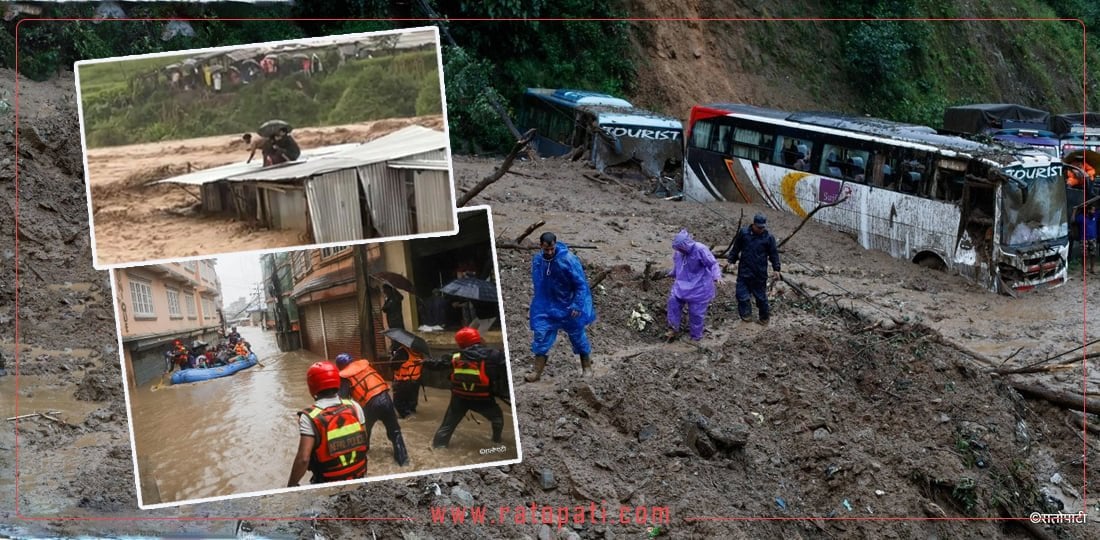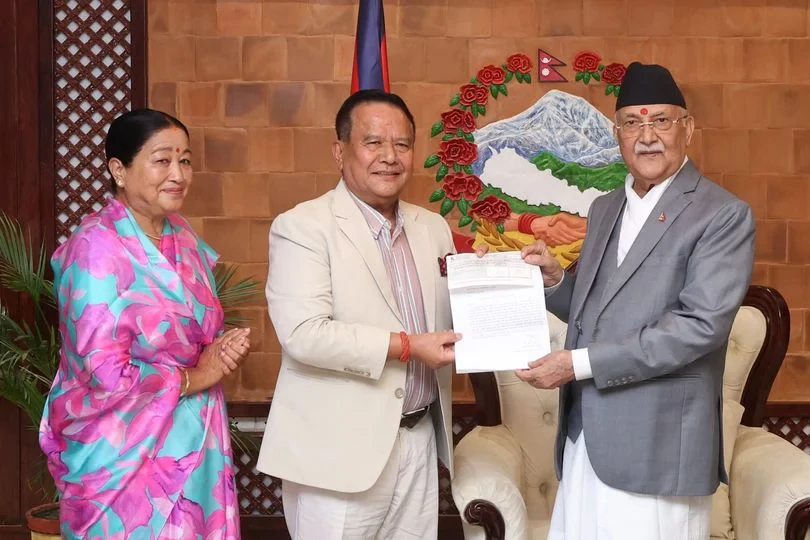Some private entities adds burden to public amid crisis

Kathmandu, October 4 — The major highways of the country that were closed due to landslides last Friday and Saturday are still not fully operational. With almost all major highways shut down, air travel has naturally become the alternative for transportation. Although heavy congestion has caused delays in flights and landings, air service companies are providing service for up to 18 hours daily.
Due to increased demand, it is an international rule that airfares rise accordingly. The minimum and maximum prices for air travel in Nepal have also been set based on this. As passenger numbers increased, air service companies sold tickets at the highest rates. While the companies did not arbitrarily raise fares, and the rates they charged were not illegal, they seemed to forget that the country was in a state of disaster. This led to widespread complaints from passengers and the general public due to the lack of affordable tickets.
After this, air service operators and the Civil Aviation Authority of Nepal discussed the situation and announced that they would not charge high fares for three days. By the time this decision was made, almost all tickets had already been sold. Air service companies stated that they had already booked 70% of tickets for the Dashain festival before the natural disaster and that affordable tickets were sold out.
During the disaster, the airline association also demanded discounts on landing, parking, navigation, and passenger fees. In a statement, they emphasized, “We urgently call upon the government to provide air fuel at reasonable prices in these challenging circumstances. Fuel surcharges will automatically decrease, benefiting passengers.”
Meanwhile, the Independent Power Producers’ Association of Nepal (IPPAN) has also shared its views during the disaster. They reported that various hydropower companies suffered losses amounting to around 250 million and made several demands to the government. IPPAN has requested a VAT exemption on imported materials for hydropower projects, along with other necessary facilities like insurance and refinancing.
Support in times of crisis
Some organizations and individuals have generously provided assistance during the disaster. The Nepal Chamber of Commerce, the largest private sector organization, announced on Monday that they would provide one hundred thousand rupees to flood-affected districts. While the umbrella organization for the country’s major industrialists decided to give one hundred thousand rupees to one district, individual businessman Min Bahadur Gurung donated eleven million rupees. Gurung, the owner of BhatBhateni, has previously set many examples of generous contributions during times of crisis.

The Rashtriya Banijya Bank has contributed 20 million rupees to the government’s relief fund, and Unilever Nepal Limited has contributed 2 million rupees. The Hotel Association of Nepal has established a relief fund, and the collected amount will be handed over to the government, as stated in their release.
Four days after the landslide, the Nepal Chamber of Commerce decided to cooperate with the government. According to Deepak Kumar Malhotra, the chairman of the Disaster Management Committee under the Chamber and its senior vice president, they will work with the government to gather accurate data on physical and human losses and to prepare for future disasters. The Nepal Chamber of Commerce is a permanent member of the Disaster Management Committee formed by the Ministry of Home Affairs.
Transport operators also presented their demands during discussions with the government on other issues. In discussions held just on Tuesday, they called for immediate assessment of the damages incurred by the affected vehicles and workers to provide compensation. Previously, the Chamber had issued a statement urging timely payment for claims made by businesses affected by disasters.
The Nepal Construction Entrepreneurs Association also issued a statement during the disaster, requesting relief for construction companies affected by the ongoing projects. They also appealed to their members to provide their equipment to the government to restore the obstructed highways. This decision by the association is commendable.
During the disaster, the supply of food and vegetables was nearly halted. At this time, businesses increased the prices of vegetables and fruits. Some vegetable prices have now risen by up to 163%.
Increase in vegetable prices and stability in food prices
During this natural disaster, some private companies opted to use small contributions for large-scale advertising. Mahalaxmi Development Bank notably gave one hundred thousand rupees to Chanik Lal Tamang, who was engaged in rescue operations in the Nakkhu River area, and publicized this through their social media and news outlets.
The Nada Automobile Association of Nepal distributed snacks and juice to the police involved in the rescue operations and ensured to promote this effort as well.
This tendency of businesses to leverage disasters for their own benefit is a longstanding issue. Experts see this as a reflection of society’s condition. Sociology professor Bhim Sigdel suggests that the understanding and mindset prevalent in society are often reflected in organizations. “Our entire society still has a long way to go to achieve true civilization. We still have much to learn to become social beings,” he says, “This tendency to demand during crises and prioritize self-interest is not unique to Nepal but is common in all developing countries.” He believes that if leadership organizations work hand in hand with the government during disasters and express their concerns at other times, society will appear somewhat more sensitive.









Leave Comment